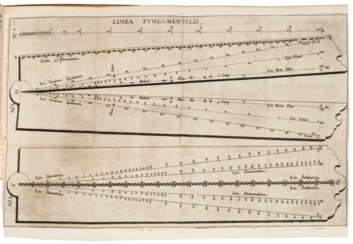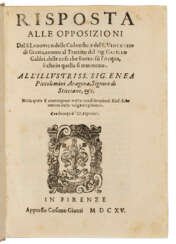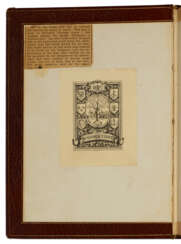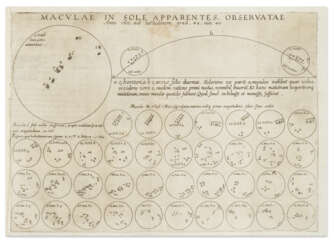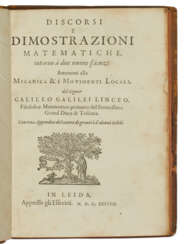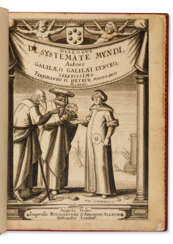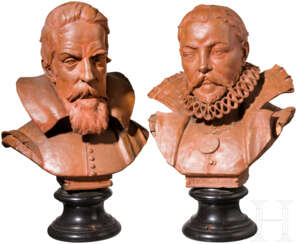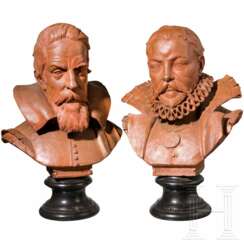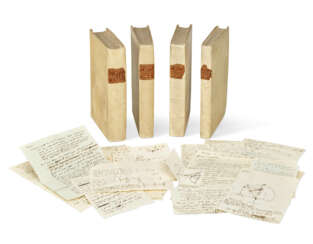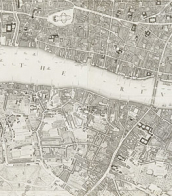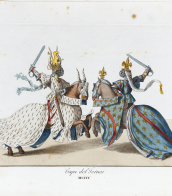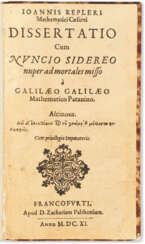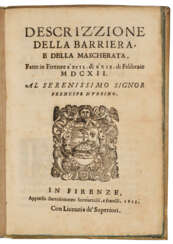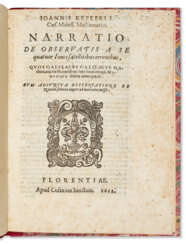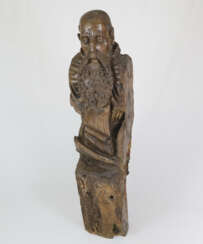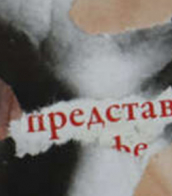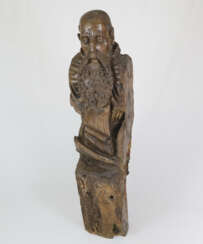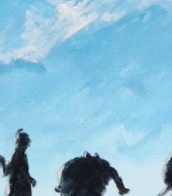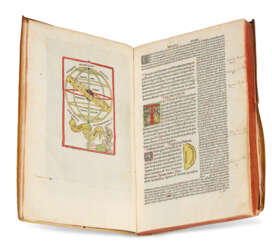galileo galilei (1564 - 1642)
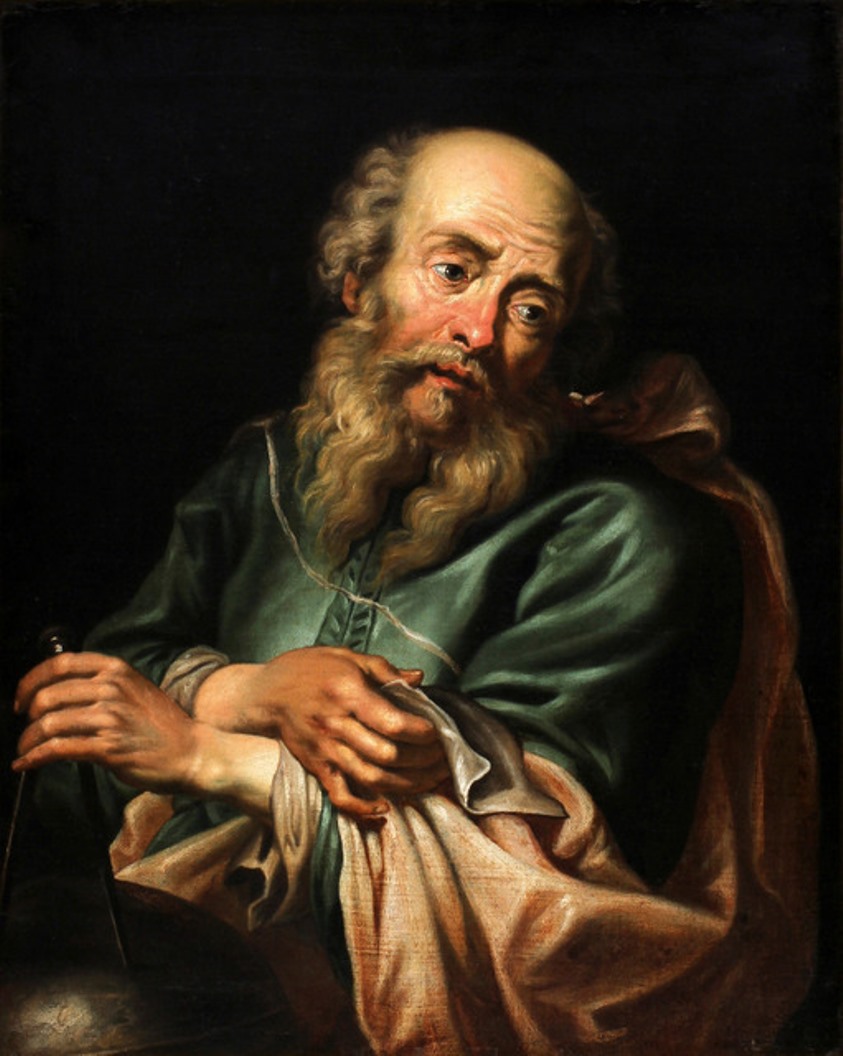
Galileo Galilei was an Italian naturalist, physicist, mechanic, astronomer, philosopher, and mathematician.
Using his own improved telescopes, Galileo Galilei observed the movements of the Moon, Earth's satellites, and the stars, making several breakthrough discoveries in astronomy. He was the first to see craters on the Moon, discovered sunspots and the rings of Saturn, and traced the phases of Venus. Galileo was a consistent and convinced supporter of the teachings of Copernicus and the heliocentric system of the world, for which he was subjected to the trial of the Inquisition.
Galileo is considered the founder of experimental and theoretical physics. He is also one of the founders of the principle of relativity in classical mechanics. Overall, the scientist had such a significant impact on the science of his time that he cannot be overemphasized.


Galileo Galilei was an Italian naturalist, physicist, mechanic, astronomer, philosopher, and mathematician.
Using his own improved telescopes, Galileo Galilei observed the movements of the Moon, Earth's satellites, and the stars, making several breakthrough discoveries in astronomy. He was the first to see craters on the Moon, discovered sunspots and the rings of Saturn, and traced the phases of Venus. Galileo was a consistent and convinced supporter of the teachings of Copernicus and the heliocentric system of the world, for which he was subjected to the trial of the Inquisition.
Galileo is considered the founder of experimental and theoretical physics. He is also one of the founders of the principle of relativity in classical mechanics. Overall, the scientist had such a significant impact on the science of his time that he cannot be overemphasized.


Galileo Galilei was an Italian naturalist, physicist, mechanic, astronomer, philosopher, and mathematician.
Using his own improved telescopes, Galileo Galilei observed the movements of the Moon, Earth's satellites, and the stars, making several breakthrough discoveries in astronomy. He was the first to see craters on the Moon, discovered sunspots and the rings of Saturn, and traced the phases of Venus. Galileo was a consistent and convinced supporter of the teachings of Copernicus and the heliocentric system of the world, for which he was subjected to the trial of the Inquisition.
Galileo is considered the founder of experimental and theoretical physics. He is also one of the founders of the principle of relativity in classical mechanics. Overall, the scientist had such a significant impact on the science of his time that he cannot be overemphasized.


Galileo Galilei was an Italian naturalist, physicist, mechanic, astronomer, philosopher, and mathematician.
Using his own improved telescopes, Galileo Galilei observed the movements of the Moon, Earth's satellites, and the stars, making several breakthrough discoveries in astronomy. He was the first to see craters on the Moon, discovered sunspots and the rings of Saturn, and traced the phases of Venus. Galileo was a consistent and convinced supporter of the teachings of Copernicus and the heliocentric system of the world, for which he was subjected to the trial of the Inquisition.
Galileo is considered the founder of experimental and theoretical physics. He is also one of the founders of the principle of relativity in classical mechanics. Overall, the scientist had such a significant impact on the science of his time that he cannot be overemphasized.


Galileo Galilei was an Italian naturalist, physicist, mechanic, astronomer, philosopher, and mathematician.
Using his own improved telescopes, Galileo Galilei observed the movements of the Moon, Earth's satellites, and the stars, making several breakthrough discoveries in astronomy. He was the first to see craters on the Moon, discovered sunspots and the rings of Saturn, and traced the phases of Venus. Galileo was a consistent and convinced supporter of the teachings of Copernicus and the heliocentric system of the world, for which he was subjected to the trial of the Inquisition.
Galileo is considered the founder of experimental and theoretical physics. He is also one of the founders of the principle of relativity in classical mechanics. Overall, the scientist had such a significant impact on the science of his time that he cannot be overemphasized.


Galileo Galilei was an Italian naturalist, physicist, mechanic, astronomer, philosopher, and mathematician.
Using his own improved telescopes, Galileo Galilei observed the movements of the Moon, Earth's satellites, and the stars, making several breakthrough discoveries in astronomy. He was the first to see craters on the Moon, discovered sunspots and the rings of Saturn, and traced the phases of Venus. Galileo was a consistent and convinced supporter of the teachings of Copernicus and the heliocentric system of the world, for which he was subjected to the trial of the Inquisition.
Galileo is considered the founder of experimental and theoretical physics. He is also one of the founders of the principle of relativity in classical mechanics. Overall, the scientist had such a significant impact on the science of his time that he cannot be overemphasized.


Galileo Galilei was an Italian naturalist, physicist, mechanic, astronomer, philosopher, and mathematician.
Using his own improved telescopes, Galileo Galilei observed the movements of the Moon, Earth's satellites, and the stars, making several breakthrough discoveries in astronomy. He was the first to see craters on the Moon, discovered sunspots and the rings of Saturn, and traced the phases of Venus. Galileo was a consistent and convinced supporter of the teachings of Copernicus and the heliocentric system of the world, for which he was subjected to the trial of the Inquisition.
Galileo is considered the founder of experimental and theoretical physics. He is also one of the founders of the principle of relativity in classical mechanics. Overall, the scientist had such a significant impact on the science of his time that he cannot be overemphasized.


Galileo Galilei was an Italian naturalist, physicist, mechanic, astronomer, philosopher, and mathematician.
Using his own improved telescopes, Galileo Galilei observed the movements of the Moon, Earth's satellites, and the stars, making several breakthrough discoveries in astronomy. He was the first to see craters on the Moon, discovered sunspots and the rings of Saturn, and traced the phases of Venus. Galileo was a consistent and convinced supporter of the teachings of Copernicus and the heliocentric system of the world, for which he was subjected to the trial of the Inquisition.
Galileo is considered the founder of experimental and theoretical physics. He is also one of the founders of the principle of relativity in classical mechanics. Overall, the scientist had such a significant impact on the science of his time that he cannot be overemphasized.


Galileo Galilei was an Italian naturalist, physicist, mechanic, astronomer, philosopher, and mathematician.
Using his own improved telescopes, Galileo Galilei observed the movements of the Moon, Earth's satellites, and the stars, making several breakthrough discoveries in astronomy. He was the first to see craters on the Moon, discovered sunspots and the rings of Saturn, and traced the phases of Venus. Galileo was a consistent and convinced supporter of the teachings of Copernicus and the heliocentric system of the world, for which he was subjected to the trial of the Inquisition.
Galileo is considered the founder of experimental and theoretical physics. He is also one of the founders of the principle of relativity in classical mechanics. Overall, the scientist had such a significant impact on the science of his time that he cannot be overemphasized.


Galileo Galilei was an Italian naturalist, physicist, mechanic, astronomer, philosopher, and mathematician.
Using his own improved telescopes, Galileo Galilei observed the movements of the Moon, Earth's satellites, and the stars, making several breakthrough discoveries in astronomy. He was the first to see craters on the Moon, discovered sunspots and the rings of Saturn, and traced the phases of Venus. Galileo was a consistent and convinced supporter of the teachings of Copernicus and the heliocentric system of the world, for which he was subjected to the trial of the Inquisition.
Galileo is considered the founder of experimental and theoretical physics. He is also one of the founders of the principle of relativity in classical mechanics. Overall, the scientist had such a significant impact on the science of his time that he cannot be overemphasized.
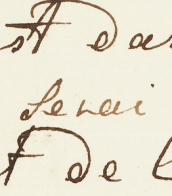

Galileo Galilei was an Italian naturalist, physicist, mechanic, astronomer, philosopher, and mathematician.
Using his own improved telescopes, Galileo Galilei observed the movements of the Moon, Earth's satellites, and the stars, making several breakthrough discoveries in astronomy. He was the first to see craters on the Moon, discovered sunspots and the rings of Saturn, and traced the phases of Venus. Galileo was a consistent and convinced supporter of the teachings of Copernicus and the heliocentric system of the world, for which he was subjected to the trial of the Inquisition.
Galileo is considered the founder of experimental and theoretical physics. He is also one of the founders of the principle of relativity in classical mechanics. Overall, the scientist had such a significant impact on the science of his time that he cannot be overemphasized.
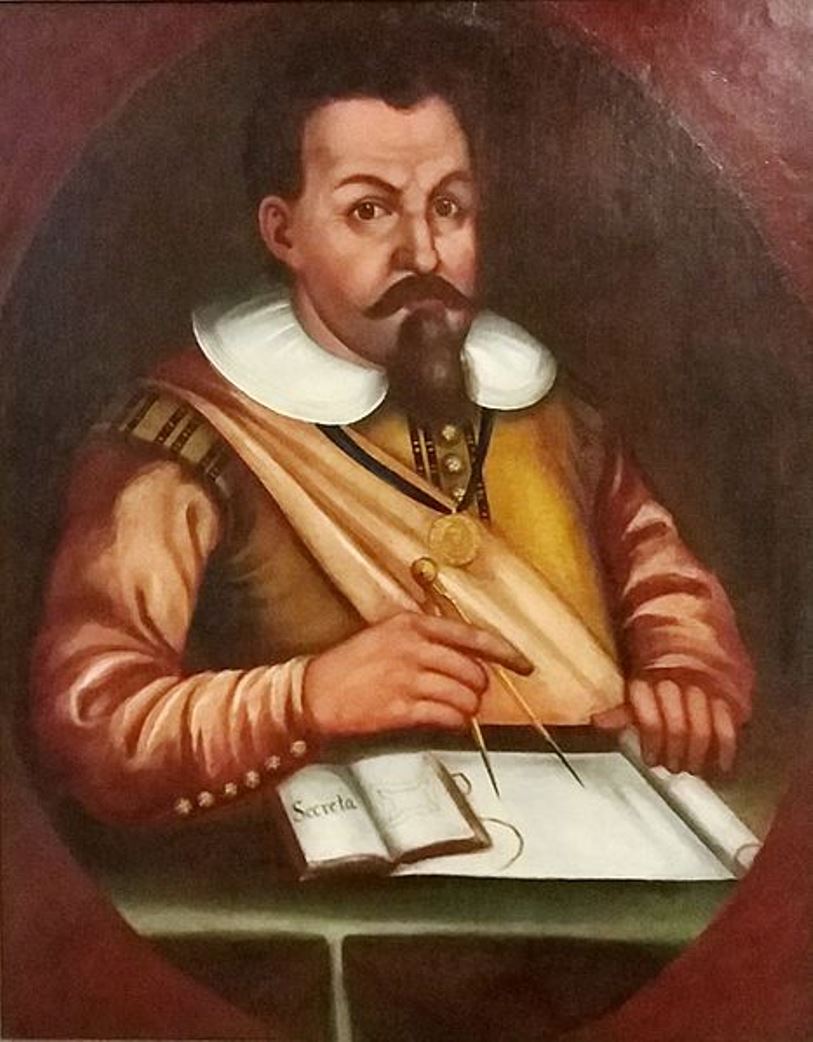
Johannes Faulhaber was a German mathematician and fortification engineer.
He was a weaver, but studied mathematics and showed such aptitude that the city authorities appointed him the city mathematician and surveyor, a surveyor. In 1600, Faulhaber opened his own school in Ulm, and worked on the fortification of Basel, Frankfurt, and many other cities. He also designed water wheels in Ulm and made mathematical and geodetic instruments, particularly for military purposes.
Among the scientists with whom Faulhaber collaborated were Kepler and van Ceulen. He made the first German publication of Briggs' logarithms, and also made the first illustrated descriptions of Galileo's compass.


Galileo Galilei was an Italian naturalist, physicist, mechanic, astronomer, philosopher, and mathematician.
Using his own improved telescopes, Galileo Galilei observed the movements of the Moon, Earth's satellites, and the stars, making several breakthrough discoveries in astronomy. He was the first to see craters on the Moon, discovered sunspots and the rings of Saturn, and traced the phases of Venus. Galileo was a consistent and convinced supporter of the teachings of Copernicus and the heliocentric system of the world, for which he was subjected to the trial of the Inquisition.
Galileo is considered the founder of experimental and theoretical physics. He is also one of the founders of the principle of relativity in classical mechanics. Overall, the scientist had such a significant impact on the science of his time that he cannot be overemphasized.
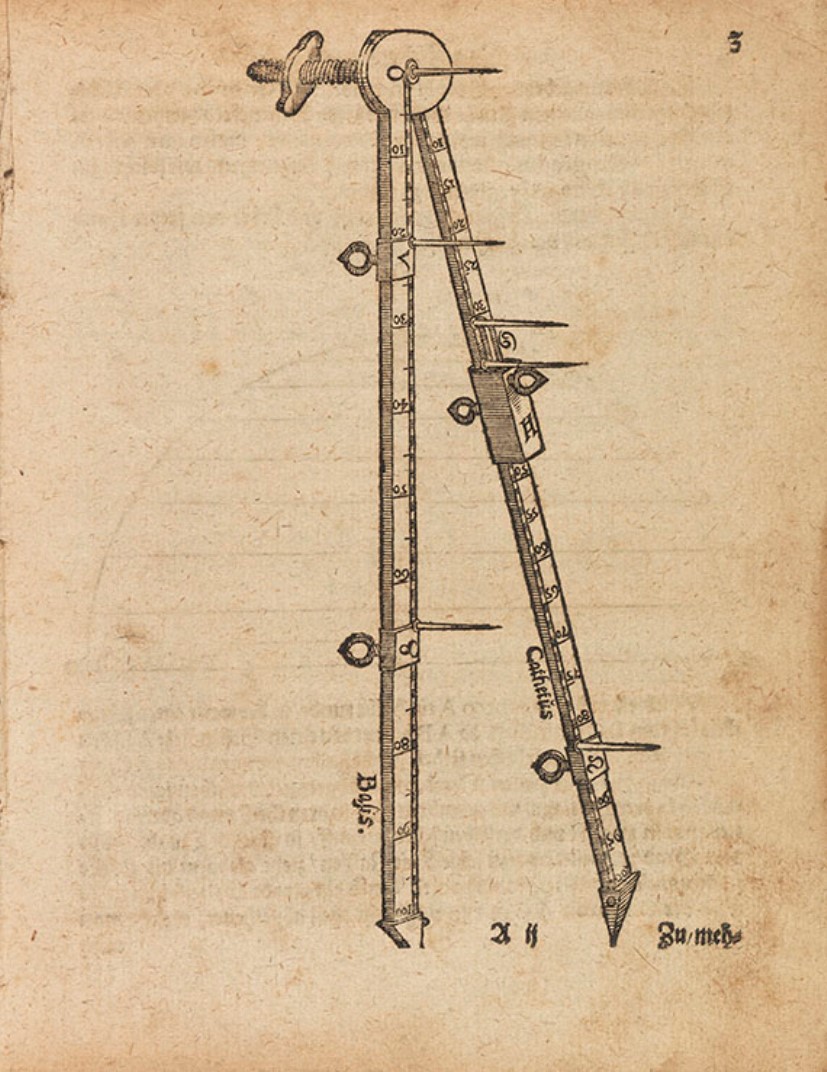
Georg Galgemair was a German mathematician and astrologer.
He was born into the family of the burgomaster of Donauwörth, was a pupil of Philip Apian, and then a master of mathematics at the University of Tübingen in 1585. After completing his studies, Galgemair began teaching at Lauingen in 1588.
His work on proportional circles led to the development of gnomonics. In the history of science, Galgemair is known for his works on mathematical instruments. As a calendar maker, he succeeded in 1606 in obtaining an imperial privilege for his calendars.
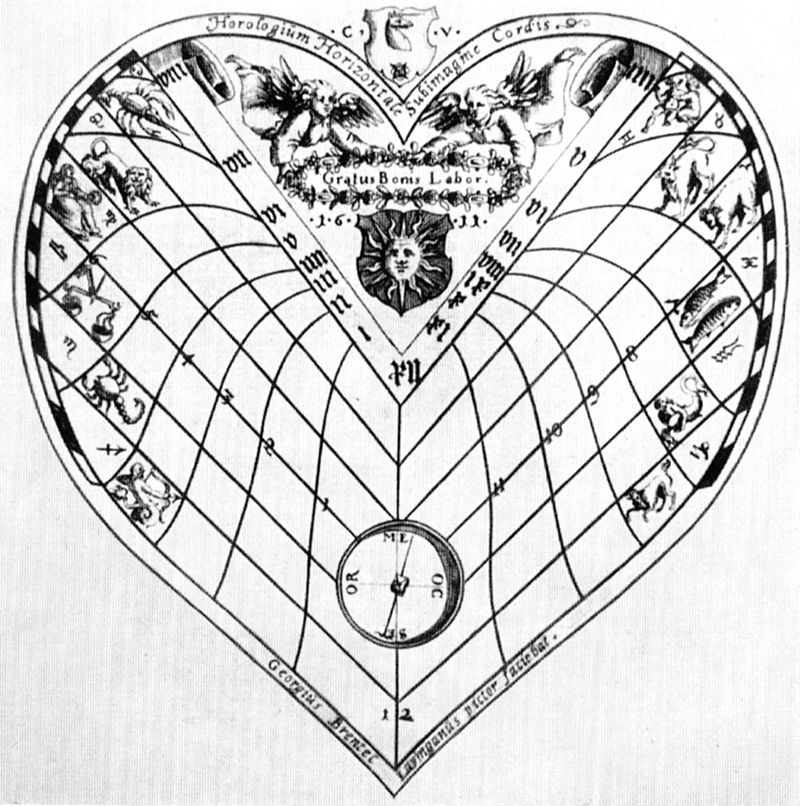
Georg Brentel the Younger was a German draftsman, engraver, and author of works on sundials and instrumentation.
He was the son of the cartographer Hans Brentel (1532-1614) and nephew of the armorial artist Georg Brentel the Elder (1525-1610). He always showed an interest in mathematics and astronomy, writing papers on these subjects and making instruments.
Brentel was particularly fond of designing sundials, and wrote several instructions for assembling various types of sundials - round and cubic, cross-shaped and heart-shaped.


Galileo Galilei was an Italian naturalist, physicist, mechanic, astronomer, philosopher, and mathematician.
Using his own improved telescopes, Galileo Galilei observed the movements of the Moon, Earth's satellites, and the stars, making several breakthrough discoveries in astronomy. He was the first to see craters on the Moon, discovered sunspots and the rings of Saturn, and traced the phases of Venus. Galileo was a consistent and convinced supporter of the teachings of Copernicus and the heliocentric system of the world, for which he was subjected to the trial of the Inquisition.
Galileo is considered the founder of experimental and theoretical physics. He is also one of the founders of the principle of relativity in classical mechanics. Overall, the scientist had such a significant impact on the science of his time that he cannot be overemphasized.
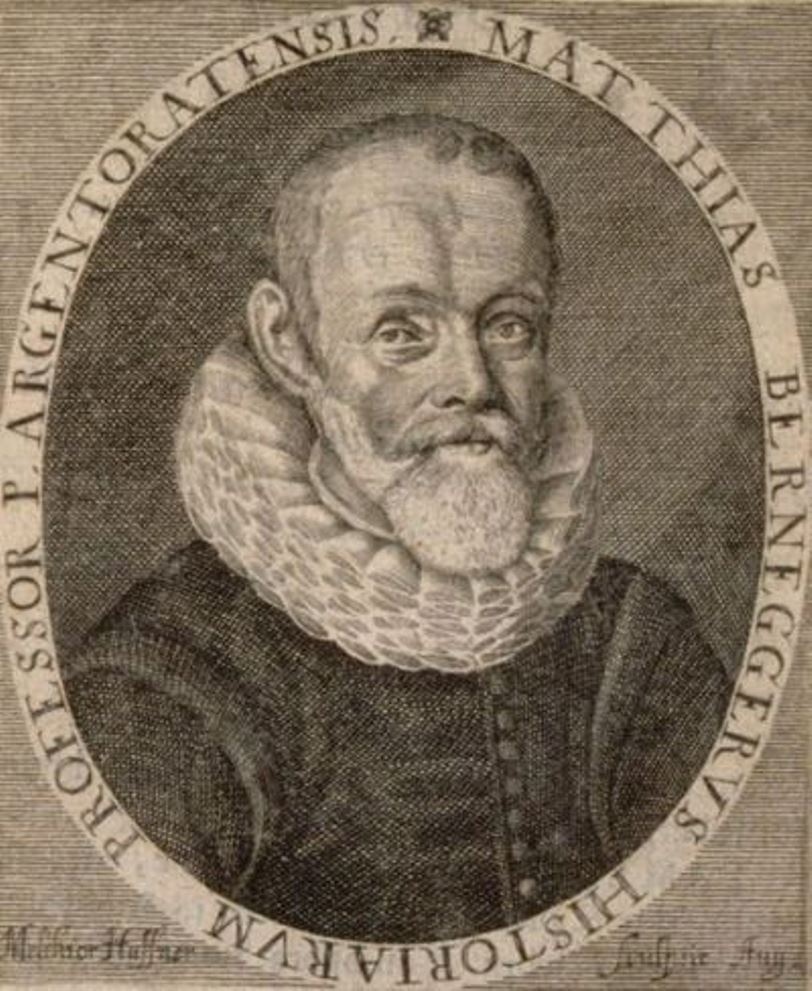
Matthias Bernegger (latin: Bernegerus or Matthew) was an Austrian and French scientist, astronomer, mathematician, linguist and translator.
He was educated in Strasbourg, where he developed a special interest in astronomy and mathematics. Bernegger corresponded with the famous scientists Johannes Kepler and Wilhelm Schickard. From 1607, Bernegger taught at the Strasbourg Gymnasium, and in 1616 he was appointed professor at the Academy.
Bernegger is known for his translations of Justinian and Tacitus, and in 1612 translated into Latin Galileo's 1606 work on the proportional compass, adding considerably to it. These additional detailed annotations by Bernegger made Galileo's compass much easier to use, making it the first mechanical calculating device that could be applied to a wide variety of complex problems. In 1619 Bernegger prepared a three-volume manual of mathematics, and in 1635 he translated Galileo's Dialogue on the Two Mass Systems of the World.


Galileo Galilei was an Italian naturalist, physicist, mechanic, astronomer, philosopher, and mathematician.
Using his own improved telescopes, Galileo Galilei observed the movements of the Moon, Earth's satellites, and the stars, making several breakthrough discoveries in astronomy. He was the first to see craters on the Moon, discovered sunspots and the rings of Saturn, and traced the phases of Venus. Galileo was a consistent and convinced supporter of the teachings of Copernicus and the heliocentric system of the world, for which he was subjected to the trial of the Inquisition.
Galileo is considered the founder of experimental and theoretical physics. He is also one of the founders of the principle of relativity in classical mechanics. Overall, the scientist had such a significant impact on the science of his time that he cannot be overemphasized.
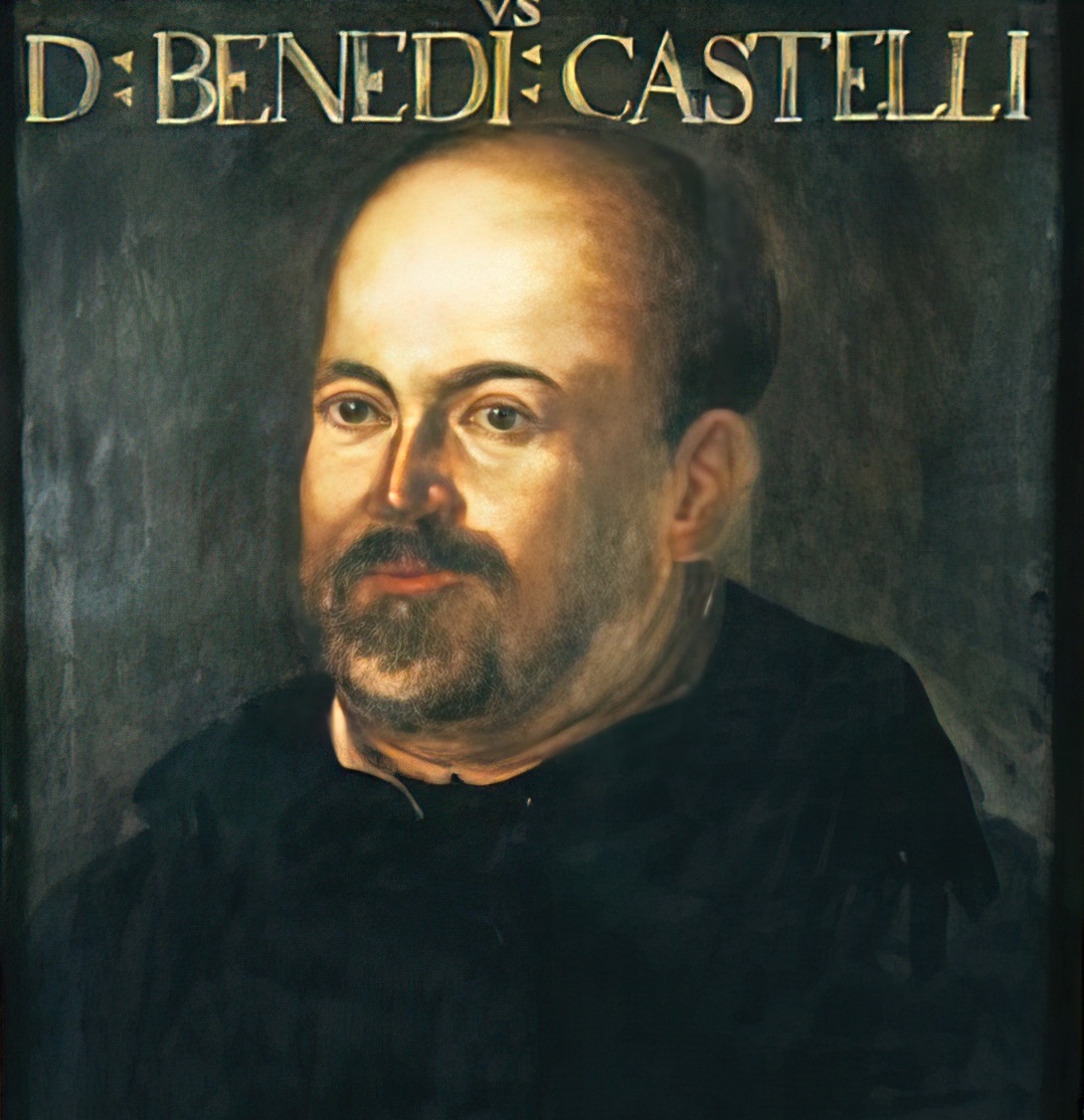
Benedetto Castelli, born Antonio Castelli, was an Italian mathematician. Benedetto was his name in religion on entering the Benedictine Order in 1595.
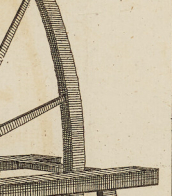

Galileo Galilei was an Italian naturalist, physicist, mechanic, astronomer, philosopher, and mathematician.
Using his own improved telescopes, Galileo Galilei observed the movements of the Moon, Earth's satellites, and the stars, making several breakthrough discoveries in astronomy. He was the first to see craters on the Moon, discovered sunspots and the rings of Saturn, and traced the phases of Venus. Galileo was a consistent and convinced supporter of the teachings of Copernicus and the heliocentric system of the world, for which he was subjected to the trial of the Inquisition.
Galileo is considered the founder of experimental and theoretical physics. He is also one of the founders of the principle of relativity in classical mechanics. Overall, the scientist had such a significant impact on the science of his time that he cannot be overemphasized.


Galileo Galilei was an Italian naturalist, physicist, mechanic, astronomer, philosopher, and mathematician.
Using his own improved telescopes, Galileo Galilei observed the movements of the Moon, Earth's satellites, and the stars, making several breakthrough discoveries in astronomy. He was the first to see craters on the Moon, discovered sunspots and the rings of Saturn, and traced the phases of Venus. Galileo was a consistent and convinced supporter of the teachings of Copernicus and the heliocentric system of the world, for which he was subjected to the trial of the Inquisition.
Galileo is considered the founder of experimental and theoretical physics. He is also one of the founders of the principle of relativity in classical mechanics. Overall, the scientist had such a significant impact on the science of his time that he cannot be overemphasized.
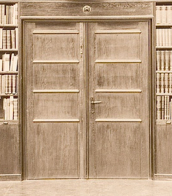

Galileo Galilei was an Italian naturalist, physicist, mechanic, astronomer, philosopher, and mathematician.
Using his own improved telescopes, Galileo Galilei observed the movements of the Moon, Earth's satellites, and the stars, making several breakthrough discoveries in astronomy. He was the first to see craters on the Moon, discovered sunspots and the rings of Saturn, and traced the phases of Venus. Galileo was a consistent and convinced supporter of the teachings of Copernicus and the heliocentric system of the world, for which he was subjected to the trial of the Inquisition.
Galileo is considered the founder of experimental and theoretical physics. He is also one of the founders of the principle of relativity in classical mechanics. Overall, the scientist had such a significant impact on the science of his time that he cannot be overemphasized.


Galileo Galilei was an Italian naturalist, physicist, mechanic, astronomer, philosopher, and mathematician.
Using his own improved telescopes, Galileo Galilei observed the movements of the Moon, Earth's satellites, and the stars, making several breakthrough discoveries in astronomy. He was the first to see craters on the Moon, discovered sunspots and the rings of Saturn, and traced the phases of Venus. Galileo was a consistent and convinced supporter of the teachings of Copernicus and the heliocentric system of the world, for which he was subjected to the trial of the Inquisition.
Galileo is considered the founder of experimental and theoretical physics. He is also one of the founders of the principle of relativity in classical mechanics. Overall, the scientist had such a significant impact on the science of his time that he cannot be overemphasized.

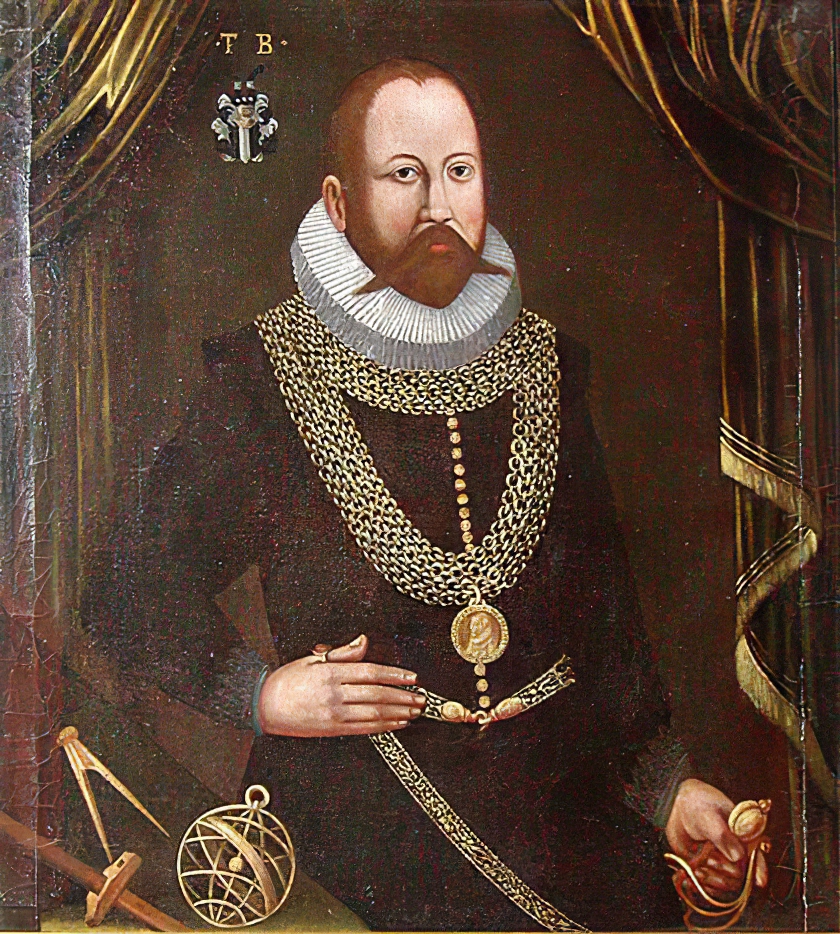
Tycho Brahe, born Tyge Ottesen Brahe, more commonly called Tycho, was a prominent Danish astronomer, astrologer, and alchemist of the Renaissance.
As a young man he traveled extensively throughout Europe, studying in Wittenberg, Rostock, Basel, and Augsburg and acquiring mathematical and astronomical instruments. In 1572 Tycho unexpectedly even for himself discovered a new star in Cassiopeia, and the publication of this turned the young Dane into an astronomer of European reputation. For further astronomical research he established an observatory and gathered around him modern progressive scientists.
Besides practicing astronomy, Tycho was an artist, scientist, and craftsman, and everything he undertook or surrounded himself with had to be innovative and beautiful. He even founded a printing house to produce and bind his manuscripts in his own way, and he perfected sanitary ware for convenience. His development of astronomical instruments and his work in measuring and fixing the positions of the stars laid a solid foundation for future discoveries.
Tycho's observations - the most accurate possible before the invention of the telescope - included a comprehensive study of the solar system and the precise positions of more than 777 fixed stars. What Tycho accomplished using only his simple instruments and intellect remains a remarkable achievement of the Renaissance.

Galileo Galilei was an Italian naturalist, physicist, mechanic, astronomer, philosopher, and mathematician.
Using his own improved telescopes, Galileo Galilei observed the movements of the Moon, Earth's satellites, and the stars, making several breakthrough discoveries in astronomy. He was the first to see craters on the Moon, discovered sunspots and the rings of Saturn, and traced the phases of Venus. Galileo was a consistent and convinced supporter of the teachings of Copernicus and the heliocentric system of the world, for which he was subjected to the trial of the Inquisition.
Galileo is considered the founder of experimental and theoretical physics. He is also one of the founders of the principle of relativity in classical mechanics. Overall, the scientist had such a significant impact on the science of his time that he cannot be overemphasized.
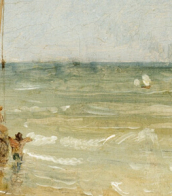

Tycho Brahe, born Tyge Ottesen Brahe, more commonly called Tycho, was a prominent Danish astronomer, astrologer, and alchemist of the Renaissance.
As a young man he traveled extensively throughout Europe, studying in Wittenberg, Rostock, Basel, and Augsburg and acquiring mathematical and astronomical instruments. In 1572 Tycho unexpectedly even for himself discovered a new star in Cassiopeia, and the publication of this turned the young Dane into an astronomer of European reputation. For further astronomical research he established an observatory and gathered around him modern progressive scientists.
Besides practicing astronomy, Tycho was an artist, scientist, and craftsman, and everything he undertook or surrounded himself with had to be innovative and beautiful. He even founded a printing house to produce and bind his manuscripts in his own way, and he perfected sanitary ware for convenience. His development of astronomical instruments and his work in measuring and fixing the positions of the stars laid a solid foundation for future discoveries.
Tycho's observations - the most accurate possible before the invention of the telescope - included a comprehensive study of the solar system and the precise positions of more than 777 fixed stars. What Tycho accomplished using only his simple instruments and intellect remains a remarkable achievement of the Renaissance.

Galileo Galilei was an Italian naturalist, physicist, mechanic, astronomer, philosopher, and mathematician.
Using his own improved telescopes, Galileo Galilei observed the movements of the Moon, Earth's satellites, and the stars, making several breakthrough discoveries in astronomy. He was the first to see craters on the Moon, discovered sunspots and the rings of Saturn, and traced the phases of Venus. Galileo was a consistent and convinced supporter of the teachings of Copernicus and the heliocentric system of the world, for which he was subjected to the trial of the Inquisition.
Galileo is considered the founder of experimental and theoretical physics. He is also one of the founders of the principle of relativity in classical mechanics. Overall, the scientist had such a significant impact on the science of his time that he cannot be overemphasized.
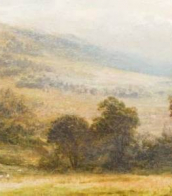

Galileo Galilei was an Italian naturalist, physicist, mechanic, astronomer, philosopher, and mathematician.
Using his own improved telescopes, Galileo Galilei observed the movements of the Moon, Earth's satellites, and the stars, making several breakthrough discoveries in astronomy. He was the first to see craters on the Moon, discovered sunspots and the rings of Saturn, and traced the phases of Venus. Galileo was a consistent and convinced supporter of the teachings of Copernicus and the heliocentric system of the world, for which he was subjected to the trial of the Inquisition.
Galileo is considered the founder of experimental and theoretical physics. He is also one of the founders of the principle of relativity in classical mechanics. Overall, the scientist had such a significant impact on the science of his time that he cannot be overemphasized.
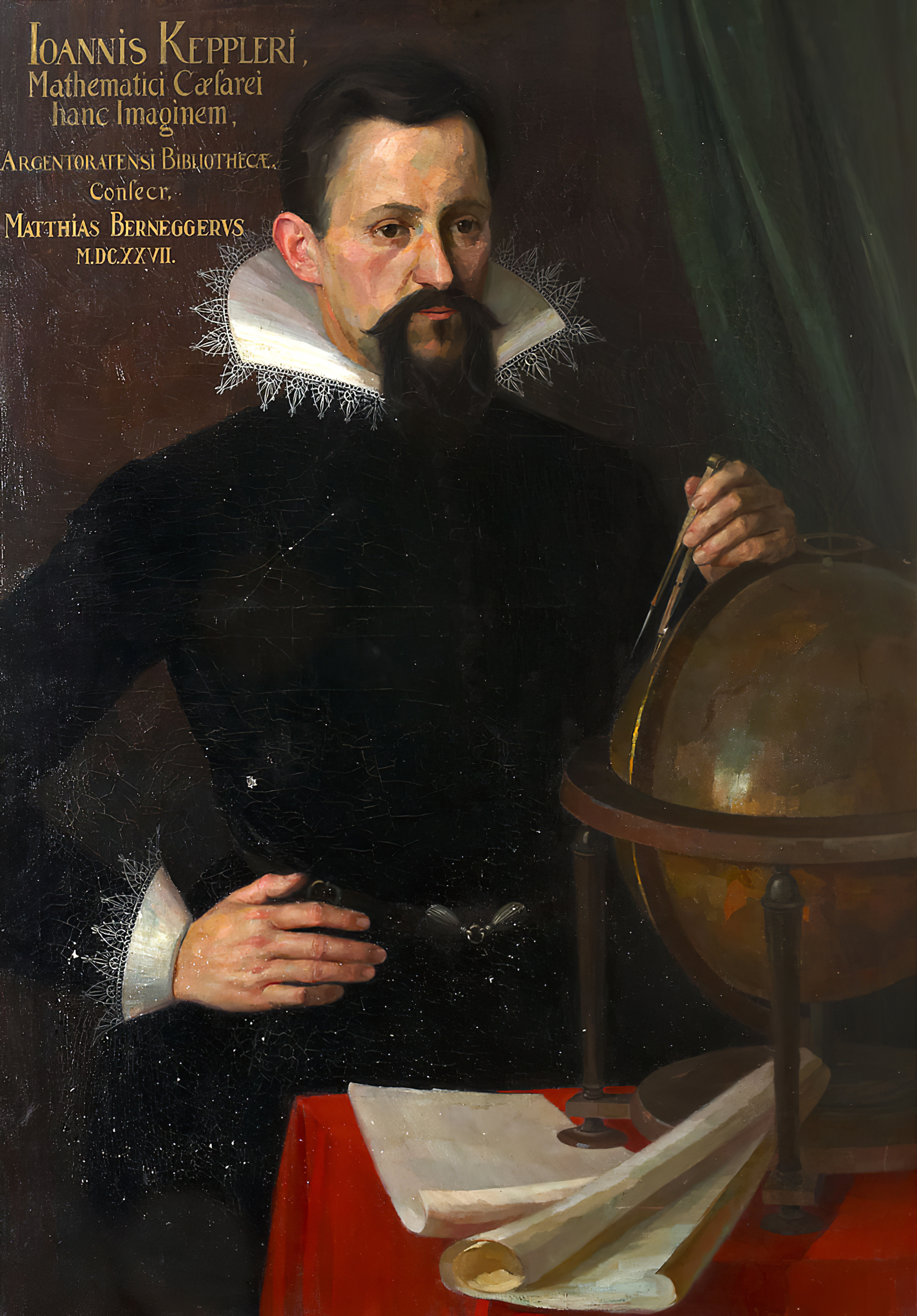
Johannes Kepler was a German mathematician and astronomer who discovered that the Earth and planets move around the Sun in elliptical orbits.
Kepler created the three fundamental laws of planetary motion. He also did seminal work in optics and geometry, calculated the most accurate astronomical tables, and made many inventions and discoveries in physics on which further scientific discoveries by advanced scientists were based.


Galileo Galilei was an Italian naturalist, physicist, mechanic, astronomer, philosopher, and mathematician.
Using his own improved telescopes, Galileo Galilei observed the movements of the Moon, Earth's satellites, and the stars, making several breakthrough discoveries in astronomy. He was the first to see craters on the Moon, discovered sunspots and the rings of Saturn, and traced the phases of Venus. Galileo was a consistent and convinced supporter of the teachings of Copernicus and the heliocentric system of the world, for which he was subjected to the trial of the Inquisition.
Galileo is considered the founder of experimental and theoretical physics. He is also one of the founders of the principle of relativity in classical mechanics. Overall, the scientist had such a significant impact on the science of his time that he cannot be overemphasized.


Galileo Galilei was an Italian naturalist, physicist, mechanic, astronomer, philosopher, and mathematician.
Using his own improved telescopes, Galileo Galilei observed the movements of the Moon, Earth's satellites, and the stars, making several breakthrough discoveries in astronomy. He was the first to see craters on the Moon, discovered sunspots and the rings of Saturn, and traced the phases of Venus. Galileo was a consistent and convinced supporter of the teachings of Copernicus and the heliocentric system of the world, for which he was subjected to the trial of the Inquisition.
Galileo is considered the founder of experimental and theoretical physics. He is also one of the founders of the principle of relativity in classical mechanics. Overall, the scientist had such a significant impact on the science of his time that he cannot be overemphasized.

Johannes Kepler was a German mathematician and astronomer who discovered that the Earth and planets move around the Sun in elliptical orbits.
Kepler created the three fundamental laws of planetary motion. He also did seminal work in optics and geometry, calculated the most accurate astronomical tables, and made many inventions and discoveries in physics on which further scientific discoveries by advanced scientists were based.

![[Galileo Galilei (1564-1642)]](/assets/image/picture_1224674/5d627/4fca1b60f798787e41689a81ca0e08161607468400jpg__fix_374_244.jpeg)
![[Galileo Galilei (1564-1642)]](https://veryimportantlot.com/assets/image/picture_1224674/5d627/4fca1b60f798787e41689a81ca0e08161607468400jpg__fix_374_244.jpeg)
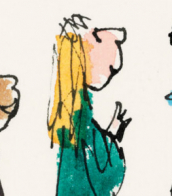
![Galileo Galilei (1564-1642) [and Marin Mersenne (1588-1648)].](/assets/image/picture_1385120/0d194/5c9e9762551134045c495e462543a9bd1618394400jpg__fix_374_244.jpeg)
![Galileo Galilei (1564-1642) [and Marin Mersenne (1588-1648)].](https://veryimportantlot.com/assets/image/picture_1385120/0d194/5c9e9762551134045c495e462543a9bd1618394400jpg__fix_374_244.jpeg)
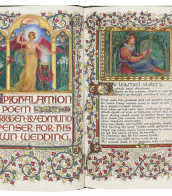
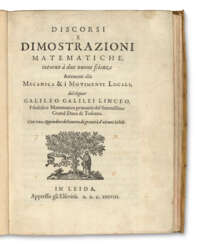

![GALILEI, Galileo (1564-1642) and Buonardo SAVI [Urbano D'AVISO, (b. 1618)]](/assets/image/picture_2278820/c8c28/3440ffce0de14252ed0fdd5dfd1e0dce1657663200jpg__fix_374_244.jpeg)
![GALILEI, Galileo (1564-1642) and Buonardo SAVI [Urbano D'AVISO, (b. 1618)]](https://veryimportantlot.com/assets/image/picture_2278820/c8c28/3440ffce0de14252ed0fdd5dfd1e0dce1657663200jpg__fix_374_244.jpeg)
![[GALILEI, Galileo (1564-1642)] — CASTELLI, Benedetto](/assets/image/picture_2279448/089cf/0c6646dd107660ed4adadc32f328199d1657663200jpg__fix_374_244.jpeg)
![[GALILEI, Galileo (1564-1642)] — CASTELLI, Benedetto](https://veryimportantlot.com/assets/image/picture_2279448/089cf/0c6646dd107660ed4adadc32f328199d1657663200jpg__fix_374_244.jpeg)
![GALILEI, Galileo (1564-1642) and Buonardo SAVI [Urbano D'AVISO, (b. 1618)]](/assets/image/picture_2585859/5511a/5df8046dee7c236b789d01f99a324ec11670972400jpg__fix_374_244.jpeg)
![GALILEI, Galileo (1564-1642) and Buonardo SAVI [Urbano D'AVISO, (b. 1618)]](https://veryimportantlot.com/assets/image/picture_2585859/5511a/5df8046dee7c236b789d01f99a324ec11670972400jpg__fix_374_244.jpeg)
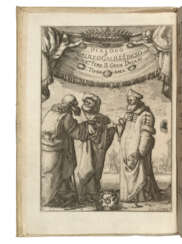

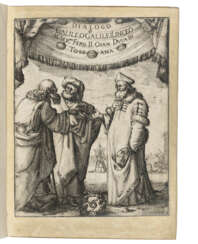

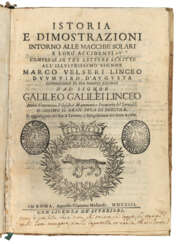



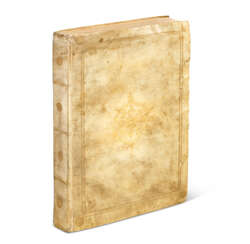

![[GALILÉE (1564-1642)]](/assets/image/picture_2500846/dc31d/5791a151593007ede58de410177bcfcb1667984400jpg__fix_374_244.jpeg)
![[GALILÉE (1564-1642)]](https://veryimportantlot.com/assets/image/picture_2500846/dc31d/5791a151593007ede58de410177bcfcb1667984400jpg__fix_374_244.jpeg)


